Best movies like Einstein's Big Idea
The story behind the world's most famous equation, E = mc2
A unique, carefully handpicked, selection of the best movies like Einstein's Big Idea Starring Aidan McArdle, Anton Lesser, Andrew Callaway, Julian Rhind-Tutt, and more. If you liked Einstein's Big Idea then you may also like: No Greater Love, April and the Extraordinary World, A Beautiful Mind, Champagne for Caesar, The Man Who Knew Infinity and many more popular movies featured on this list. You can further filter the list even more or get a random selection from the list of similar movies, to make your selection even easier.
Over 100 years ago, Albert Einstein grappled with the implications of his revolutionary special theory of relativity and came to a startling conclusion: mass and energy are one, related by the formula E = mc2. In "Einstein's Big Idea," NOVA dramatizes the remarkable story behind this equation. E = mc2 was just one of several extraordinary breakthroughs that Einstein made in 1905, including the completion of his special theory of relativity, his identification of proof that atoms exist, and his explanation of the nature of light, which would win him the Nobel Prize in Physics. Among Einstein's ideas, E = mc2 is by far the most famous. Yet how many people know what it really means? In a thought-provoking and engrossing docudrama, NOVA illuminates this deceptively simple formula by unraveling the story of how it came to be.
Einstein's Big Idea
You may filter the list of movies on this page for a more refined, personalized selection of movies.
Still not sure what to watch click the recommend buttun below to get a movie recommendation selected from all the movies on this list
April and the Extraordinary World
France asleep in the nineteenth century, governed by steam and Napoleon VI, where scientists vanish mysteriously, a girl, Avril, goes in search of her missing scientist parents.
A Beautiful Mind
John Nash is a brilliant but asocial mathematician fighting schizophrenia. After he accepts secret work in cryptography, his life takes a turn for the nightmarish.
Champagne for Caesar
When jobless genius Beauregard Bottomley interviews with Burnbridge Waters for a position at Waters' soap company, the owner rudely turns Bottomley down. As revenge, Bottomley enters a TV quiz show that Waters' company sponsors, with the goal of winning until he bankrupts the businessman. When Bottomley keeps acing the questions, becoming a media sensation, Waters desperately calls on vixen Flame O'Neal to uncover Bottomley's area of weakness.
The Man Who Knew Infinity
Growing up poor in Madras, India, Srinivasa Ramanujan Iyengar earns admittance to Cambridge University during WWI, where he becomes a pioneer in mathematical theories with the guidance of his professor, G.H. Hardy.
Insignificance
Four 1950s cultural icons who conceivably could have met but probably didn't, fictionally do so in this modern fable of post-WWII America. Visually intriguing, the film has a fluid progression of flashbacks and flashforwards centering on the fictional Einstein's current observations, childhood memories, and apprehensions for the future.
Einstein and Eddington
A look at the evolution of Albert Einstein's theory of relativity, and Einstein's relationship with British scientist Sir Arthur Eddington, the first physicist to understand his ideas.
Dark Matter
Liu Xing a brilliant Chinese student, arrives at University and makes the transition into American life with the help of Joanna Silver. Xing joins a cosmology group working to create a model of the origins of the universe. He is obsessed with the study of dark matter and a theory that conflicts with the group's model. When he begins to make breakthroughs of his own, he encounters obstructions.
It's Always Fair Weather
Three World War II buddies promise to meet at a specified place and time 10 years after the war. They keep their word only to discover how far apart they've grown. But the reunion sparks memories of youthful dreams that haven't been fulfilled -- and slowly, the three men reevaluate their lives and try to find a way to renew their friendship.
The Prize
A group of Nobel laureates descends on Stockholm to accept their awards. Among them is American novelist Andrew Craig, a former literary luminary now writing pulp detective stories to earn a living. Craig, who is infamous for his drinking and womanizing, formulates a wild theory that physics prize winner Dr. Max Stratman has been replaced by an impostor, embroiling Craig and his chaperone in a Cold War kidnapping plot.
Storytime
The first story-time segment is about a cheerful cockroach named Don, who scurries throughout his mansion home, walks beneath the floorboards and does unspeakable things in the darkness of the cupboard, before being splatted by somebody's foot. The second segment is about an ordinary man named Albert Einstein ("the only Albert Einstein not to have discovered the Theory of Relativity") whose hands have a life of their own, staying out late at night, misbehaving and committing adultery with feet. The third segment – hasn't much story to it at all, and instead concerns the inhabitants of the moving pictures on an over-sized Christmas card, who interact with each other in all sorts of bizarre ways.
Molly's Theory of Relativity
Set on Halloween, a young astronomer who has unexpectedly lost her job, is poised to make perhaps the first reckless decision of her life.
Via Panisperna Boys
The enthusiasms, fears, joys and disappointments of the (private and professional) life of a well-known group of boys fond of physics and mathematics, who just made history as the Via Panisperna boys.
Yellow Submarine
The wicked Blue Meanies take over Pepperland, eliminating all color and music. As the only survivor, the Lord Admiral escapes in the yellow submarine and journeys to Liverpool to enlist the help of the Beatles.
The Formula
The story of Quinn and Graham, two engineering students who discover a mathematical formula to pick up women with ease.
Copenhagen
No one knows for sure what transpired when German physicist Werner Heisenberg met with his Jewish Danish counterpart, Niels Bohr, in Copenhagen -- the event became the stuff of modern scientific mythology. Director Howard Davies puts his spin on the momentous meeting that occurred one night in September 1941, during which the longtime friends entered into a dangerous discussion about physics and politics.
Absolute Proof
MyPillow CEO Mike Lindell claims a Chinese cyberattack 'flipped' the 2020 election.
The Gerson Miracle
In 1928, Dr. Max Gerson, a German-Jewish researcher, stumbled upon a therapy that has cured tens of thousands of people worldwide since then, including patients's previously thought incurable by their doctors. For the first time, this film chronicles the epic true story of Gerson's miracle. A cure for cancer and most other chronic and degenerative diseases has been available since 1928. The therapy was developed by Max Gerson, MD, a German Jewish physician, hailed by Nobel Laureate Albert Schweitzer as, “the most brilliant medical genius ever.” Nine Gerson patients relate stories of recovery from the most deadly cancers (liver, ovarian, pancreatic) up to nineteen years ago. Their inspiring testimonies are powerful evidence of the Therapy’s effectiveness. Charlotte Gerson also describes her lifelong efforts to keep the Therapy alive despite powerful opposition.
Inner Worlds, Outer Worlds
There is one vibratory field that connects all things. It has been called Akasha, Logos, the primordial OM, the music of the spheres, the Higgs field, dark energy, and a thousand other names throughout history. The vibratory field is at the root of all true spiritual experience and scientific investigation. It is the same field of energy that saints, Buddhas, yogis, mystics, priests, shamans and seers, have observed by looking within themselves. Many of history's monumental thinkers, such a Pythagoras, Kepler, Leonardo DaVinci, Tesla, and Einstein, have come to the threshold of this great mystery. It is the common link between all religions, all sciences, and the link between our inner worlds and our outer worlds.
The City Dark
THE CITY DARK is a feature documentary about the loss of night. After moving to NYC from rural Maine, filmmaker Ian Cheney asks a simple question - do we need the stars? - taking him from Brooklyn to Mauna Kea, Paris, and beyond. Exploring the threat of killer asteroids in Hawaii, tracking hatching turtles along the Florida coast, and rescuing injured birds on Chicago streets, Cheney unravels the myriad implications of a globe glittering with lights - including increased breast cancer rates from exposure to light at night, and a generation of kids without a glimpse of the universe above. Featuring stunning astrophotography and a cast of eclectic scientists, THE CITY DARK is the definitive story of light pollution and the disappearing stars. Written by Wicked Delicate Films
t=E/x²
t=E/x² ("texsquare") tells the story of Merlin, an editor at a film production company finishing a documentary. He soon realises that he is stuck in a time loop along with a stranger, Eva. t=E/x² unfolds as a 'reverse narrative' and on three different time levels, where the protagonists are stuck in the same time loop as the audience.
The Secrets of Gravity: In the Footsteps of Albert Einstein
Why do things fall to the ground without magic? The young magician's apprentice Limbradur is far more interested in the universe and its secrets than boring magic spells. He is fascinated by the stars, the universe and the laws of nature. So, one night he sneaks into the Albert Einstein Museum, where he meets AlbyX3, a small, clever but rather quirky robot who knows all about Albert Einstein and his theories. Alby takes Limbradur on a magical journey of discovery through time and space, during which they not only uncover the secrets of gravity but also learn much about friendship and imagination. For Limbradur and Alby both have secrets of their own.
Einstein
This captivating documentary from the History Channel recounts the development of iconic physicist Albert Einstein's provocative theory of general relativity. Some 200 years after the introduction of Isaac Newton's law of universal gravitation, Einstein rocked the science community with his theory, which suggests that gravity is a warping of space-time caused by the presence of matter.
Marie Curie
The most turbulent five years in the life of a genius woman: Between 1905, where Marie Curie comes with Pierre Curie to Stockholm to be awarded the Nobel Prize for the discovery of the radioactivity, and 1911, where she receives her second Nobel Prize, after challenging France's male-dominated academic establishment both as a scientist and a woman.
Benjamin Britten: Peace and Conflict
A feature film about Benjamin Britten, released as part of the 100 year celebrations of his birth. Britten is the most performed British composer worldwide. This film premiered at Gresham's School, which he attended, and focuses on how his life-long pacifism influenced his life and music. Written and directed by Tony Britten (In Love With Alama Cogan), narrated by John Hurt and with a superb cast of young people, including many supporting roles taken by students of Gresham's School, the film weaves dramatisation with a documentary narrative.
Young Dr. Freud
This documentary retraces the life of the famous Austrian psychiatrist, Sigmund Freud, from his birth to the publication of his landmark book on dream interpretation. Dr. Freud revolutionary theories spawned the psychoanalytic school of psychology.
Darwin's Struggle: The Evolution of the Origin of Species
Documentary telling the little-known story of how Darwin came to write his great masterpiece, On the Origin of Species, a book which explains the wonderful variety of the natural world as emerging out of death and the struggle of life. In the twenty years he took to develop a brilliant idea into a revolutionary book, Darwin went through a personal struggle every bit as turbulent as that of the natural world he observed. Fortunately, he left us an extraordinary record of his brilliant insights, observations of nature, and touching expressions of love and affection for those around him. He also wrote frank accounts of family tragedies, physical illnesses and moments of self-doubt, as he laboured towards publication of the book that would change the way we see the world. The story is told with the benefit of Darwin's secret notes and correspondence, enhanced by natural history filming, powerful imagery from the time and contributions from leading contemporary biographers and scientists.
Toni Morrison: Black Matter(s)
Toni Morrison (1931-2019), first black woman writer being awarded the Nobel Prize of Literature, was a critic, a book editor, a college professor, and a creative author of novels, poems and essays. She claimed the invention of a black writing and brought the light on what had kept silenced since the days of the birth of the United States of America as an independent nation: the black people history.
Fractals: The Colors Of Infinity
Explores the revolutionary world of Fractal Geometry - its far-reaching and often unexpected implications - its powerful and revolutionary applications.
Secrets of Einstein's Brain
The year 2015 marks the 60th anniversary of Albert Einstein's death... and the disappearance of his brain. Scientists over the decades have examined this priceless specimen to try and determine what made this seemingly normal man change the face of science and define the word genius. This documentary will follow the path of Einstein's physical brain and all the places it traveled, while simultaneously telling the story of Einstein the man. This special dives deep into Einstein's life, his theories, and not just what we've learned about the human brain by studying his, but what we have yet to learn.
Star Trek: Secrets of the Universe
Is building our own starship Enterprise possible? Will we ever travel between the stars as easily as they do in Star Trek? JJ Abrams' new feature, Star Trek Into Darkness, hits the screen in a golden age of scientific discoveries. HISTORY is there, giving viewers a deep look behind the scenes, on the set, and into the science–amazing new exoplanets, the physics of Warp drive, and the ideas behind how we might one day live in a Star Trek Universe.
Inside Einstein's Mind: The Enigma of Space and Time
In November 1915, Einstein published his greatest work: General Relativity, the theory that transformed our understanding of nature's laws and the entire history of the cosmos. This documentary tells the story of Einstein's masterpiece, from the simple but powerful ideas at the heart of relativity to the revolution in cosmology still playing out in today's labs, revealing Einstein's brilliance as never before.
Borders
A philosophical flume ride through the physical, political and moral borders that inhibit the free movement of people and ideas. Mixing commentary, computer graphics, dramatizations, and investigative journalism, Borders probes the unsettling paradoxes behind immigration, drugs, Star Wars, and other topics.
Faster Than the Speed of Light?
In September 2011, an international group of scientists has made an astonishing claim - they have detected particles that seemed to travel faster than the speed of light. It was a claim that contradicted more than a hundred years of scientific orthodoxy. Suddenly there was talk of all kinds of bizarre concepts, from time travel to parallel universes. So what is going on? Has Einstein's famous theory of relativity finally met its match? Will we one day be able to travel into the past or even into another universe? In this film, Professor Marcus du Sautoy explores one of the most dramatic scientific announcements for a generation. In clear, simple language he tells the story of the science we thought we knew, how it is being challenged, and why it matters.
The Joy of Logic
A sharp, witty, mind-expanding and exuberant foray into the world of logic with Computer Scientist Dave Cliff. Following in the footsteps of the award-winning The Joy of Stats and its sequel, Tails You Win - The Science of Chance, The Joy of Logic takes viewers on a new Wingspan roller-coaster ride through philosophy, maths, science and technology all of which, under the bonnet, run on logic. Wielding the same wit and wisdom, animation and gleeful nerdery as its predecessors, this film journeys from Aristotle to Alice in Wonderland, Sci-Fi to Supercomputers to tell the fascinating story of the quest for certainty and the fundamentals of sound reasoning itself.
100 Years of the Atom
The exciting story of the splitting of the atom, a scientific breakthrough of incalculable importance that ushered in the nuclear age, has a dark side: the many events in which people were exposed to radiation, both intentionally and by accident.
The Time Capsule
In the near future, a politician fresh off an electoral loss escapes to his family's summer lake house. His vacation is disrupted by the appearance of his first love, who has just returned from a 20-year space voyage and hasn't aged a day.
Einstein's God Model
For thousands of years, evidence of life after death has eluded mankind. Science is about to change that. With the help of a physicist, a blind medium, and Thomas Edison’s final experiment, Brayden Taylor embarks on a quest to contact his deceased fiancee. For his love to transcend dimensions, he must defy the laws of quantum physics. He must defy the balance nature demands. He must defy ... Einstein’s God Model.
Singularity Principle
Singularity Principle is a feature length science-fiction film about the consequences of renegade experiments into Parallel Universes. Co-written and directed (with Austin Hines) by physicist Dr. David Deranian, the film pays particular attention to accurate scientific detail. The story starts off with the disappearance of noted scientist Professor Jack Brenner (John Diehl) during a fateful parallel universe experiment. Jack's protégé, Dr. Peter Tanning (Michael Denis) is being interrogated by Dr. Lawrence Cason (William B. Davis) of a clandestine Black-Ops Agency to learn about the experiment and to find out what happened to Jack Brenner. Lawrence makes it clear that he wants to know everything about the experiment, including how parallel universes can be manipulated. The story unfolds with Peter describing the events of the experiment up to the fateful day where...
The Big Everything
Niels is overjoyed when he hears about the black hole that will drastically reduce his prison sentence. He’s been chosen for his talents as a mechanic to take part in a special mission: escorting a band of eccentric scientists in a spaceship to a black hole that is fifty light years away from Earth. The deal seems more than correct to him as the mission will only take six weeks for them to see Earth again. There’s only one small annoying detail. Those six weeks in hyperspace represent some hundred years on Earth. And that is if everything will go as planned.
A Trip to Infinity
Does infinity exist? Can we experience the Infinite? In an animated film (created by artists from 10 countries) the world's most cutting-edge scientists and mathematicians go in search of the infinite and its mind-bending implications for the universe. Eminent mathematicians, particle physicists and cosmologists dive into infinity and its mind-bending implications for the universe.
The Science of Interstellar
Matthew McConaughey narrates a fascinating look at Christopher Nolan's sci-fi film "Interstellar," including scientific foundations, the work of consulting Scientist Kip Thorne, basic film themes, the science behind the search for planets capable of hosting life, space-time and the theory of relativity, the science of wormholes and black holes, crafting the film's visuals based on real scientific observation, the birth of the universe, the Dust Bowl and the evolution of dust as a toxin, the likelihood of future dust storms, the prospects of escaping a dying or doomed planet and the possibilities of colonizing Mars.
Nuclear Now
With unprecedented access to the nuclear industry in France, Russia, and the United States, Nuclear Now explores the possibility for the global community to overcome the challenges of climate change and energy poverty to reach a brighter future through the power of nuclear energy. Beneath our feet, Uranium atoms in the Earth’s crust hold incredibly concentrated energy. Science unlocked this energy in the mid-20th century, first for bombs and then to power submarines. The United States led the effort to generate electricity from this new source. Yet in the mid-20th century as societies began the transition to nuclear power and away from fossil fuels, a long-term PR campaign to scare the public began, funded in part by coal and oil interests.
Einstein and the Bomb
What happened after Einstein fled Nazi Germany? Using archival footage and his own words, this docudrama dives into the mind of a tortured genius.
Startling Proofs
It is the demand of every skeptic: prove to me that God exists. Of course making a decision to accept the Gospel of Christ is a matter of faith.
The Day After Trinity
This essential, Academy Award–nominated documentary offers an urgent warning from history about the dangers of nuclear warfare via the story of J. Robert Oppenheimer, the enigmatic physicist and all-around Renaissance man who led the Manhattan Project to develop the atomic bomb that America unleashed on Japan in the final days of World War II. Through extensive interviews and archival footage, THE DAY AFTER TRINITY traces Oppenheimer’s evolution, from architect of one of the most consequential endeavors of the twentieth century to an outspoken opponent of nuclear proliferation who came to deeply regret his role in ushering in the perils of the atomic age.


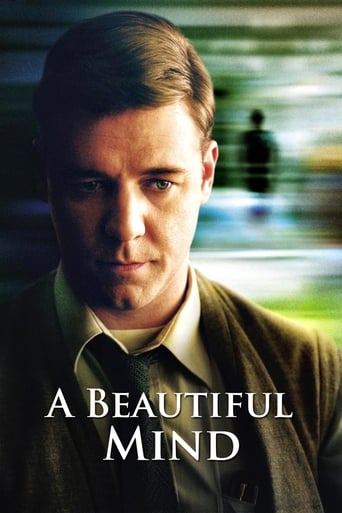

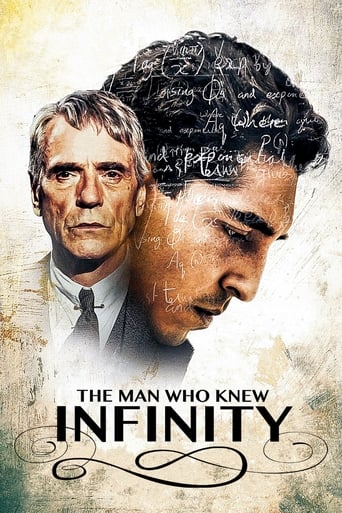





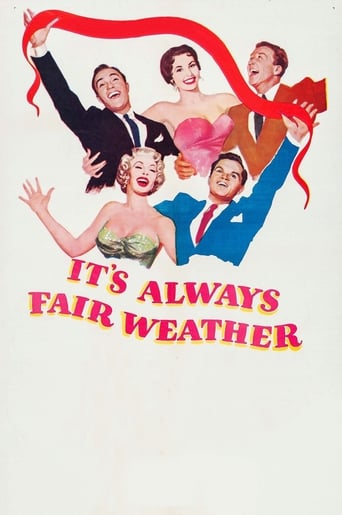













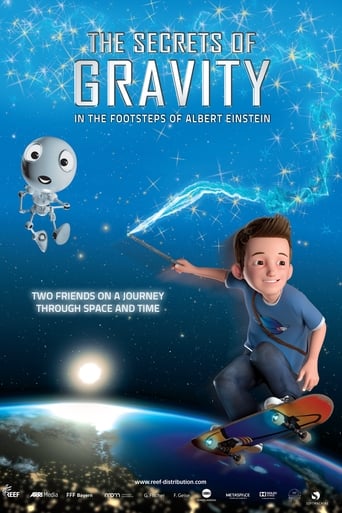















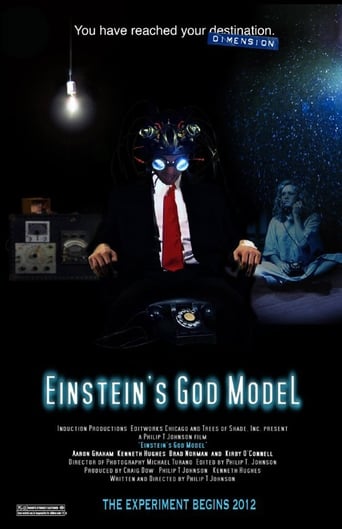

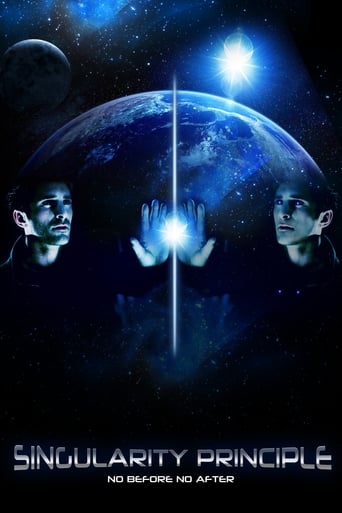


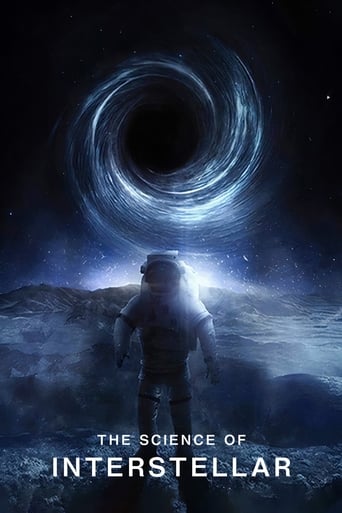



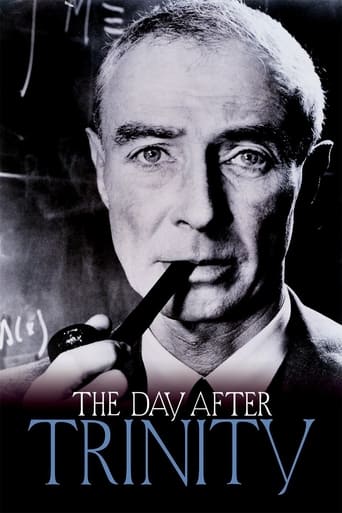

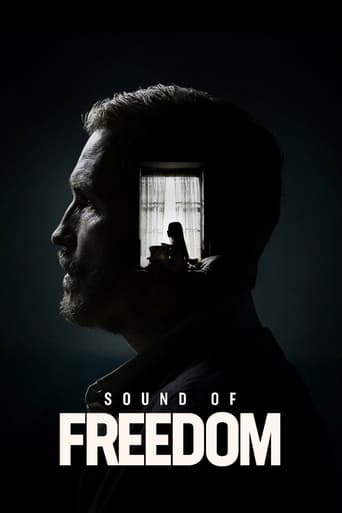
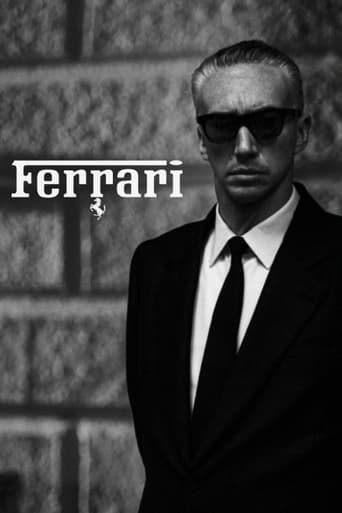

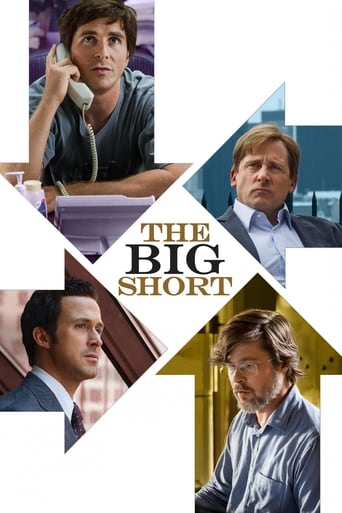

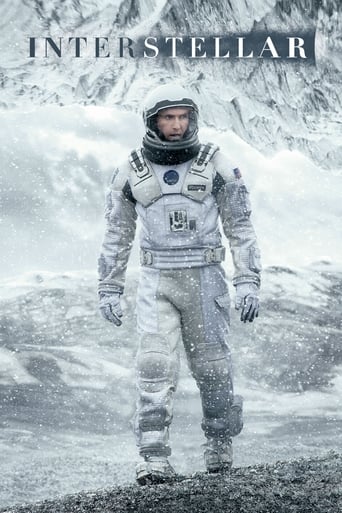
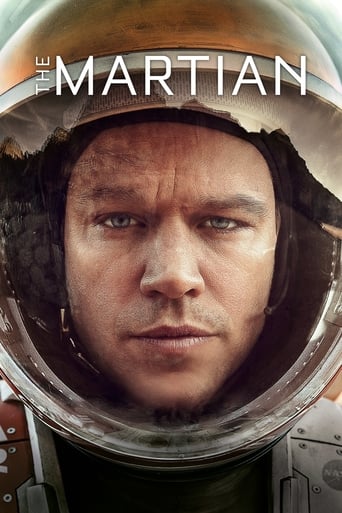
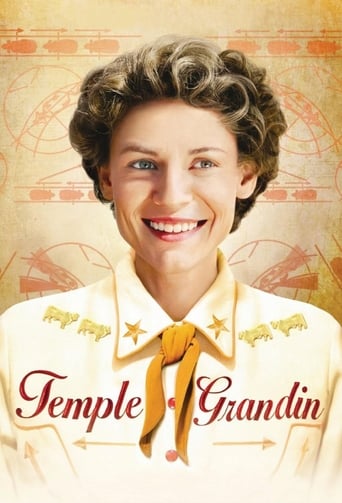
No Greater Love
Directed by Harald Braun and told from the perspective of Bertha von Suttner, the first female to receive the Nobel Peace Prize, The Alfred Nobel Story - No Greater Love chronicles the life of scientist, inventor, and businessman Alfred Nobel. Nobel built a massive fortune throughout his life, and while much if it was amassed by his inventions--dynamite being perhaps the most notable--he was also revered for his discoveries within the fields of science and economics. Upon his death, Nobel decided that his fortune was simply too great to continue in the form of an inheritance or single charitable donation, opting instead to use the money as reward for the greatest contributors to physics, chemistry, medicine, literature, and, of course, peace.